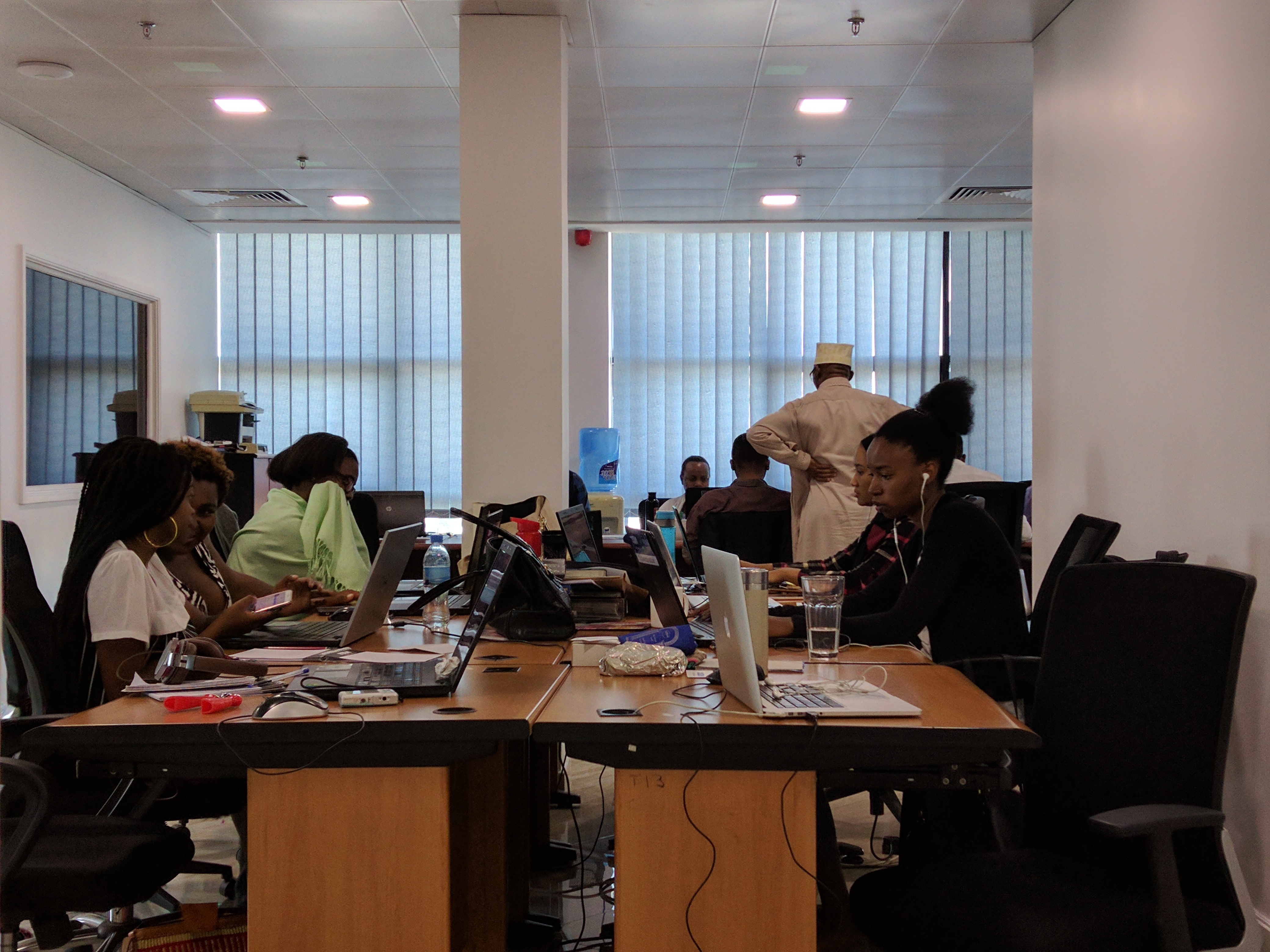Challenges of emerging market of incubation centres in Africa
In Africa, the business incubators have a growth rate of about 30 per cent but the rate of failure is also very high. Besides, the concentration of Start-Ups and incubation centers in a few leading countries is further widening the disparity among African nations.

- Country:
- Cameroon
An incubation centre is not just space but it constitutes all those required to assist for the launch of a business and make it sustainable in the market. Initially a domain of academic institutions, Start-Up incubation is fast taking shape of specialized entrepreneurship in Africa and also throughout the world.
Thus a Start-Up incubation includes but not limited to infrastructure only. The services of an incubator may include office space, flexible lease terms, access to technology, financing, and technical assistance (such as marketing, legal, finance, HR, and other business development services). In a region like Africa, inexperienced youths are venturing into the entrepreneurship which has provided a huge market for incubation centres. Therefore, setting up an incubation centre requires proper understanding of real estate, innovation culture, industrial activities, policy conceptualization and economy etc. Depending on the services they provide, the Start-Up incubators are broadly classified into three board categories – Germinate Incubator, Incubate Incubator and Host Incubator. The germinate incubators provide assistance at the level of idea and incubate incubators helps in the launch of the Start-Up while host incubators provide post-launch support from time to time.
Africa is a rising market of Start-Ups and incubation centres. As the market is highly vibrant, the data of Start-Ups and incubation centres change almost on a daily basis. The maximum number of Start-Up incubator centres are in South Africa.
Incubator Disparity in Africa
According to a World Bank report in 2016, Africa had 173 incubation centres out of which 118 were led by CSOs, 16 by academic institutions, 11 by government agencies and 28 were hybrid incubation centres. The previous report of World Bank in 2014 had assessed the number to 90.
The report reveals that South Africa had a maximum of 32 incubation centres followed by 16 in Kenya, 15 in Nigeria, 12 in Ghana and 11 in Egypt. However, the countries such as Sudan, South Sudan, Niger, Congo, Tunisia etc. had only one incubation centre. The Central African nation Cameroon had only two incubation centre. Furthermore, some countries such as Lesotho and the Central African Republic did not have any incubation centre. This shows a high level of disparity in the African countries for hosting incubation centres which are now considered as the backbone of an innovation ecosystem.
Internet Disparity in Africa
The disparity in Start-Ups and incubation centres lie in the internet disparity in Africa. According to the latest report on internet penetration in African countries, Kenya has the best internet connection facilities where 89.9 per cent people use the internet. Africa has only 39.6 per cent internet users against a non-African global average of 62.7 per cent. Furthermore, internet access is confined to less than one-fourth population of several countries with Eritrea at the lowest with just 1.3 per cent. The internet is available to only 4.8 per cent population of Western Sahara, 5.3 per cent in Burundi and the Central Africa Republic and 6.5 per cent in Chad.
As the fourth industrial revolution is based on the internet, access to the internet is crucial for innovations and Start-Ups. The countries lagging behind on internet are bound to lose in this race of technological innovations until they are not provided required support.
Lack of Expertise
However, the Pan-African academic associations have done a lot in producing high experts and academicians in Africa but innovation and entrepreneurship in the age of drastically changing technology require multi-disciplinary and transdisciplinary approach. Besides, the review of Africa’s ACE I and ACE II projects indicate the problem of brain drain and gender inequality as well. According to the Africa-America Institute, “returns to investments in higher education in Africa are 21 per cent—the highest in the world.” However, only around 5 or 6 per cent of Africans are enrolled in higher education. African governments should do all they can to increase that number. The continent requires such Centers of Excellence which have orientation for preparing students for innovation, entrepreneurship and business development support system.
Investment
Lack of access to capital has been a primary challenge before innovators and Start-Ups in African countries. This is one of the major reasons for the huge investment of Chinese companies in the African continent. According to a report, three African companies brought about $ 240 million from 15 Chinese investors.
Experts suggest that African youths are second to none in innovations. The improving standard of education and research in some countries are yielding innovator of international standard in almost all the areas but the real benefit is going to Chinese investors.
The Way Ahead
As African countries are small economies, forming associations to address the problems should be the first step to ensure innovations made by the African youths are provided sufficient funding. This could also be done at the institutional level by increasing the number of dedicated centres of excellence to provide the three levels of business support system – germinate-incubation, incubate-incubation and post-incubation facilities. The networks of incubations such as the Work Bank-supported InfoDev, mLabs, and mHubs should also work to increase their reach in the courtiers which are lagging in the race of innovations, StartUps and entrepreneurship ecosystem. There is great need to develop incubators which could act as a single shop window for all requirements of Start-Ups such as office space, specialized equipment, experienced mentors, group training and incubation, shared business, technological support, seed funding, market research, business networking support and all those required to create and nurture innovation and entrepreneurship ecosystem.
- FIRST PUBLISHED IN:
- Devdiscourse News Desk

 Devdiscourse News Desk
Devdiscourse News Desk








